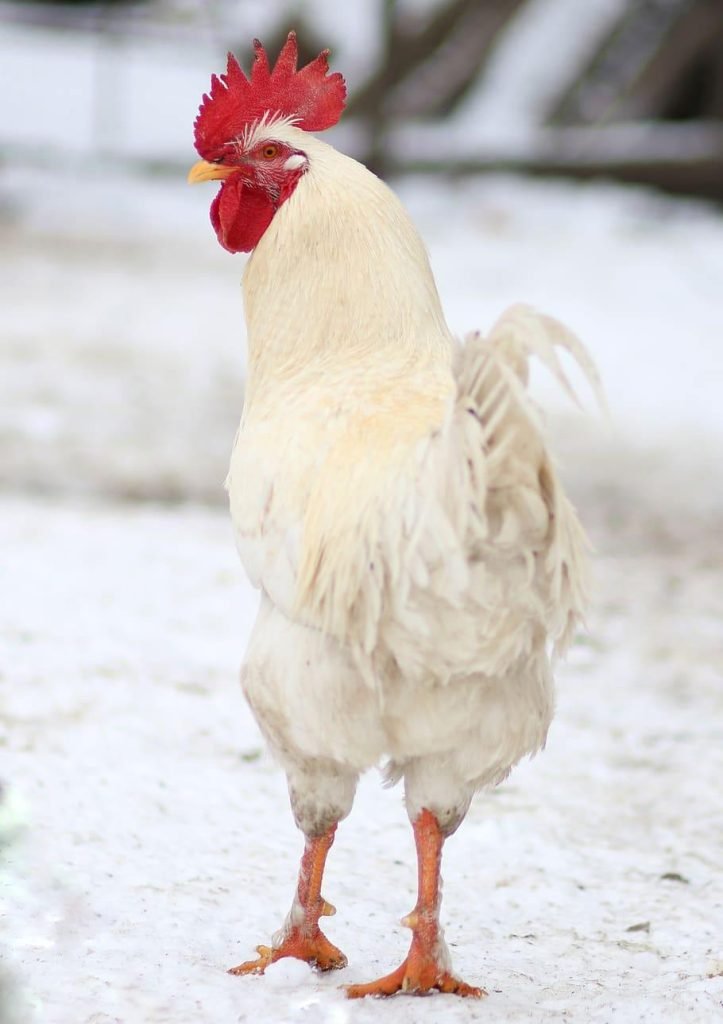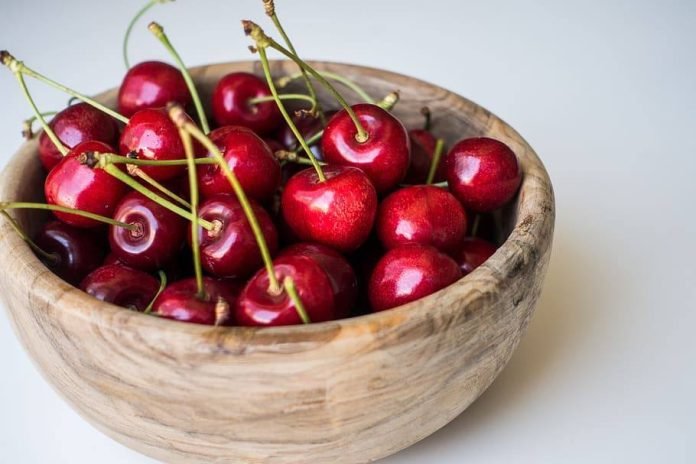Chickens are omnivores and can eat a variety of fruits and vegetables in addition to their regular diet of grains and protein. However, as a chicken owner, it’s essential to know which foods are safe and beneficial for your flock. And to know which ones can be harmful. Cherry fruits may interest chicken owners, but can chickens eat them? Let’s find out! This guide will cover everything about Can Chickens Eat Cherries? That will include their nutritional benefits, potential risks, and how to incorporate them into your flock’s diet safely.
Table of Contents
The Question of Chickens and Cherries
As a chicken owner, you may be wondering whether cherries are a safe and healthy addition to your flock’s diet. While chickens are known to eat a wide variety of foods, it’s important to be cautious about what you feed them. Cherries are a delicious fruit that humans enjoy, but are they safe for chickens? In this comprehensive guide, we’ll explore the potential risks and benefits of feeding cherries to chickens.
Nutritional Benefits of Cherries for Chickens

Cherries are nutritious fruit that offers several health benefits for chickens. They are rich in vitamin C, which can help to boost the immune system and improve overall health. Cherries also contain antioxidants, such as anthocyanins and flavonoids, which can protect cells from damage and may have anti-inflammatory effects. Additionally, cherries are a good source of potassium. Potassium is important for regulating fluid balance and maintaining healthy muscles and nerves.
Potential Risks of Feeding Cherries to Chickens
While cherries can offer several nutritional benefits for chickens, there are also some potential risks to consider. One of the main concerns with feeding cherries to chickens is the risk of choking. Additionally, cherries are high in sugar, which can be harmful in large quantities. Moreover, it may contribute to obesity or other health problems. It’s been suggested that cherries have a bit of cyanide, which can be poisonous if taken in large amounts.
Signs of Cherry Toxicity in Chickens to Watch Out For
If you decide to feed your chickens cherries, it’s important to be aware of the signs of cherry toxicity. Cyanide poisoning from cherries is relatively rare, but it can occur if chickens consume large quantities of the fruit. Symptoms of cherry toxicity may include difficulty breathing, lethargy, seizures, and sudden death. If you think your chickens have eaten too many cherries and are sick, don’t wait. Contact a vet right away.
Guidelines for Safely Feeding Cherries to Your Flock
Read more: Impact of Antibiotic Drug Development on Global Health
To safely feed cherries to your chickens, it’s essential to take a few precautions.
- Feeding cherries to chickens can be a fun and nutritious way to supplement their diet, but it’s important to do so safely and in moderation. By following these simple steps, you can offer your flock a healthy and enjoyable treat that they’re sure to love. Remember to always choose fresh and ripe cherries, remove the pits, chop them up, and feed in moderation. And, as with any new food, observe your chickens closely for any signs of discomfort or illness. With these guidelines in mind, you can safely feed cherries to your flock and promote their overall health and well-being.
- Choose ripe and fresh cherries: Always choose ripe and fresh cherries for your chickens. Avoid feeding them cherries that are moldy, spoiled, or overripe.
- Chop the cherries: Chop the cherries into small pieces or blend them into a puree to prevent choking. This also makes it easier for the chickens to digest the cherries.
- Feed in moderation: Cherries should be offered to chickens, with no more than a few cherries per chicken per week. Overfeeding cherries can lead to obesity and other health issues in chickens.
- Offer other fruits and vegetables: To provide a balanced diet, it’s essential to offer your chickens a variety of fruits and vegetables along with their regular feed. This can help prevent boredom and encourage natural foraging behaviors.
- Observe your chickens: Watch them closely after feeding them cherries to ensure they’re not showing any signs of discomfort or illness. If you notice vomiting or diarrhea, stop feeding them cherries and consult a veterinarian or poultry specialist.
- Avoid preserved cherries: Maraschino cherries and other types of cherries preserved with added sugar or additives should be avoided as they can be harmful to chickens.
How to Introduce Cherries to Your Chickens’ Diet?
If you’ve decided to incorporate cherries into your chickens’ diet, it’s important to introduce them slowly and in small quantities. Begin by offering a few cherries as a treat and monitor your chickens for any adverse reactions. If your chickens tolerate the cherries well, you can gradually increase the amount you feed them. However, be sure to limit the number of cherries you feed your chickens to avoid overfeeding and health problems.
The Best Types of Cherries for Chickens to Eat
When feeding cherries to your chickens, it’s best to choose ripe, fresh cherries that are free from mold or other signs of spoilage. Sweet cherries, such as Bing or Rainier cherries, are generally safe for chickens to eat in moderation. Sour cherries, such as Montmorency or Morello cherries, are also safe for chickens to eat in moderation, but they may not be as appealing to chickens due to their tartness. It’s important to avoid feeding your chickens maraschino cherries or other types of cherries that have been preserved with added sugar or other additives, as these can be harmful to chickens.
Cherry Treats for Chickens: How Much and How Often to Feed Your Feathered Friends?
When giving cherries to your chickens, don’t overdo it. Cherries contain a lot of sugar, so feed them as a treat and not every day. This will keep your flock healthy and prevent health problems. A good rule of thumb is to offer no more than a few cherries per chicken per week. Be sure to monitor your chickens for any signs of illness or distress after feeding them cherries, and adjust the amount you feed them accordingly.
Can Chickens Eat Cherry Leaves and Stems?
While cherries themselves are safe for chickens to eat in moderation, the leaves and stems of the cherry plant can be toxic. Cherry leaves and stems contain cyanide, which can be harmful in high doses. If you have cherry trees on your property, be sure to keep your chickens away from the leaves and stems and dispose of any fallen leaves or branches promptly.
A Quick Overview

- Cherries can be a healthy snack for chickens, containing several beneficial nutrients such as vitamin C, fiber, and antioxidants.
- Giving chickens cherries in small amounts can help their health and immune system.
- Always take out the pits, as they can cause choking or blockages.
- Feeding too many cherries can make chickens overweight and cause health problems.
- Also, be careful with cherry leaves and stems as they have cyanide, which is poisonous in large amounts.
- Most types of cherries are safe for chickens to eat, but sour cherries should be offered in moderation due to their tartness.
- Maraschino cherries and other types of cherries preserved with added sugar or additives should be avoided as they can be harmful to chickens.
- Cherries can provide chickens with a natural source of sugar, which can be beneficial for energy and digestion.
- In addition to their nutritional benefits, cherries can also help keep chickens hydrated due to their high water content.
- The best way to offer cherries to chickens is to chop them up into small pieces or blend them into a puree to prevent choking.
- Feeding chickens a varied diet that includes fruits and vegetables can help prevent boredom and encourage natural foraging behaviors.
- While cherries can be a healthy treat for chickens, it’s important to always provide them with a balanced and complete diet of grains and protein.
- Chickens have a natural instinct to peck and scratch at their food, so it’s best to scatter the cherries or puree on the ground or in a shallow dish to encourage natural foraging behaviors.
- Suppose you’re unsure about feeding cherries or any other type of food to your chickens. In that case, it’s always a good idea to consult with a veterinarian or poultry specialist to ensure your flock receives the proper nutrition and care they need.
Conclusion
In conclusion, while cherries can offer several nutritional benefits for chickens, it’s important to feed them in moderation and with caution. While cherries are a delicious and healthy treat for your chickens, they shouldn’t replace their primary diet. Remember to permanently remove the pits from the cherries before feeding them to your chickens, and be aware of any potential risks or allergic reactions. Following these guidelines, you can safely introduce cherries to your chickens and provide them with a delicious and healthy snack. As with any new food or dietary change, it’s always a good idea to consult with your veterinarian or poultry specialist to ensure your flock receives the proper nutrition and care they need.
Apart from this, if you are interested to know more about Signs of Feeding and Swallowing Problems in Kids then visit our Lifestyle category.
FAQs (Frequently Asked Questions)
Yes, chickens can eat cherries.
Yes, cherries can provide several nutritional benefits for chickens.
No, cherry pits should be removed before feeding cherries to chickens.
No, maraschino cherries and other types of cherries preserved with added sugar or additives can be harmful to chickens.
Cherries should be offered to chickens in moderation, with no more than a few cherries per chicken per week.
No, cherry leaves and stems can be toxic to chickens as they contain cyanide.
Cherries are high in antioxidants, vitamins, and fiber, which can help support a chicken’s overall health and immune system.
The main risk is overfeeding, which can lead to obesity and other health issues. Additionally, if the pits are not removed, they can pose a choking hazard or lead to intestinal blockages.
Most types of cherries are safe for chickens to eat, but sour cherries should also be offered in moderation due to their tartiness.
It’s always a good idea to consult with a professional to ensure that your chickens are receiving the proper nutrition and care they need.















